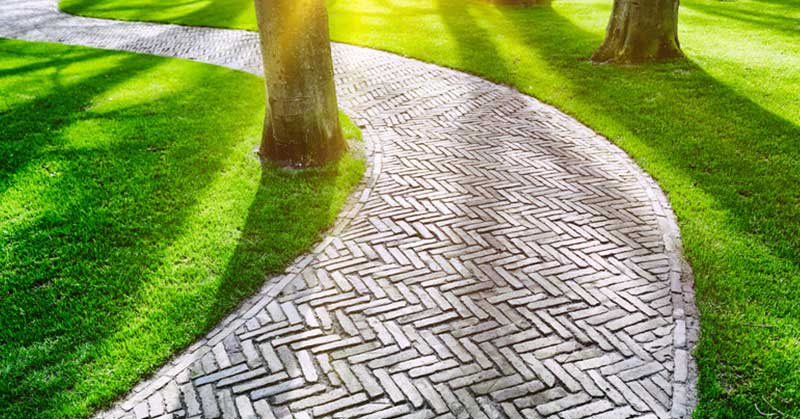Most of us know that changes in the weather can dramatically impact the plants in our yard, our pets, and even the moods of our family members. But did you know that weather also affects paved surfaces? As tough and durable as asphalt and concrete are, weather still takes its toll on pavement. Here are how some changes in climate can affect paved areas.
- Summer heat: Hot temperatures expand paved surfaces, especially asphalt. This increases the chances for cracking. If cracks aren’t repaired quickly, they can become larger in a hurry. Cracks allow water to seep through the surface, and that will weaken the sub-surface layer of the pavement. The best way to protect the surface against direct sunlight and hot summer temperatures is by seal coating.
- Rainstorms: It’s fair to say that the greatest enemy of pavement is water. If your asphalt or concrete surface does not have proper drainage, water can collect and eventually weaken the bonding materials in the pavement. This can result in the pavement wearing away, so that only the aggregate and rock remain. This is often the cause of pavement having a crumbled appearance. If the paved surface is cracked, rain water can seep in and further weaken the pavement.
- Cold weather: Climate changes can be unpredictable. Even in warmer states, it’s possible to experience a cold snap in what would otherwise be a warm time of year. These changes in temperature expand and contract a paved surface. When that happens, cracks form, and those cracks easily lead to more extensive damage, including weakening of the sub-layer, water damage, and potholes.
Have you ever heard the old expression that “Everyone complains about the weather, but nobody does anything about it”? The truth is that there’s nothing we can do about changes in our climate. But there IS something we can do to protect paved surfaces. The first thing to remember is to repair cracks right away. As we mentioned above, the longer you wait, the worse the cracks will become, and that ultimately leads to other problems. The second thing to remember is to have your paved surface seal coated on a regular basis. How often you’ll need to have it done depends on your climate conditions. A local paving contractor can help you decide how often to seal coat. Thirdly, if you notice that water collects in certain areas of your paved surface, or if you have poor drainage, talk to a paving contractor about what can be done to fix that issue before the pavement becomes too damaged.
Climate affects us all – even asphalt and concrete! Fortunately, with a little careful planning and some help from your local paving contractor, your paved surface will be able to withstand changes in the weather for many years to come.
